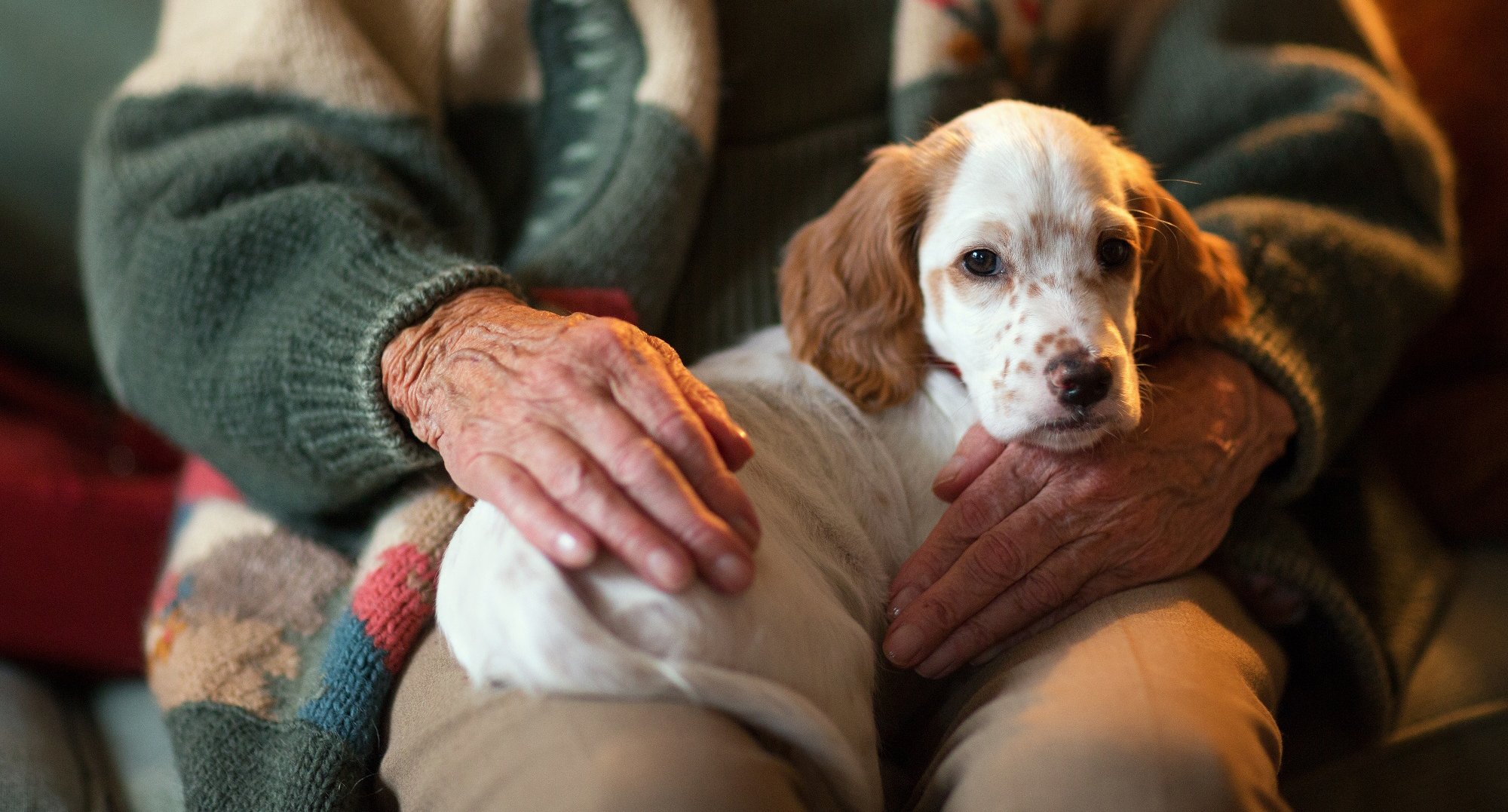
If you’ve ever owned a pet, you already know how much fun and affection they can bring. But did you know that pets can offer seniors some pretty powerful physical and mental health benefits?
That’s why some assisted living communities not only allow pets but also offer pet therapy for seniors. Also known as animal-assisted therapy, pet therapy is a technique that uses animals to interact with seniors for numerous reasons to help improve their quality of life. Studies show that just 15 minutes spent bonding with an animal promotes positive changes within the brain!
Here are five reasons to consider having a pet in your golden years.
1. Improves Your Social Life
As seniors age, it becomes harder to get out and meet people, and feelings of loneliness and isolation can lead to serious consequences for senior health. Pets, including cats, rabbits and snakes, can help their humans create friends and find social support, both of which are good for long-term health. Researchers found that pet owners were 60 percent more likely than non-pet owners to get to know people in their neighborhoods they hadn’t known before.
“Pet ownership appears to be a significant factor for facilitating social interaction and friendship formation within neighborhoods,” writes Dr. Lisa Wood, associate professor at the University of Western Australia, and her colleagues in a study, published online in the journal PLoS One. “For pet owners, this also translates into new sources of social support, both of a practical and emotionally supportive nature.”
2. Keeps You Fit and Active
Regular exercise can help older adults stay independent and prevent many health problems that come with age, yet statistics show that less than one-third of Americans older than 65 get the recommended 30 minutes five days a week. On the other hand, a study in the journal BMC Public Health reports dog owners on average walked 22 minutes more per day compared to people who didn't own a dog.
Another study published in the journal Gerontologist found that older adults who walked dogs experienced “lower body mass index, fewer activities of daily living limitations, fewer doctor visits, and more frequent moderate and vigorous exercise.”
3. Adds Meaning and Purpose
As seniors age, they begin to feel a diminished sense of purpose due to the gradual changes in social roles that accompany increasing age, and this decline is troubling: Research from the Rush Alzheimer’s Disease Center has found that people who have a greater sense of purpose in life are more likely to have slower rates of mental decline, even as plaques and tangles develop in their brains.
Pets provide a sense of purpose and boost self-esteem because they need and rely on their owners for virtually every aspect of their care. Having a pet can give new meaning to their lives and help them to not just focus on their own needs. Not only do pets give seniors a purpose, but they also enhance their self-confidence and self-esteem, providing them a way to feel useful and responsible for something.
4. Reduces Stress
Coping with stress becomes more difficult in older age. Not only are cells aging, but if you have a chronic disease, which is already a burden on the body, it’s even harder to bounce back physically from the toll the stress response takes.
But spending just a few minutes with a canine companion can lower anxiety and blood pressure and increase levels of serotonin and dopamine, two neurochemicals that play big roles in calm and well-being. Not only dogs help lower blood pressure, but they can also help lower cholesterol and decrease triglyceride levels, which contribute to better overall cardiovascular health and fewer heart attacks.
5. Alleviates Depression
Depression often occurs in seniors who suffer from other medical conditions and disabilities. Around 6 million Americans age 65 or older experience late-life depression affects. But depression doesn’t have to be a normal part of aging.
Pet therapy is recognized by the National Institute of Mental Health as a viable option for treating depression and other mood disorders. In a recent survey by the Human-Animal Bond Research Institute, 74 percent of pet owners said having a pet improved their mental health. The playful antics of a dog or cat divert attention away from an older person’s focus on themselves and the aches and pains and depression of aging, and pets provide emotional stability during stressful situations, helping to reduce anxiety and depression.
Having an animal in a senior’s life can help improve their well-being and give new meaning to their life. Being around animals makes people feel better, healthier and happier.






